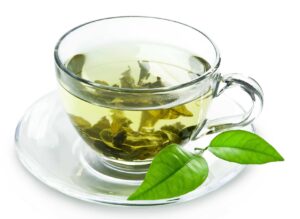
The world has faced a dissemblance of normal life in recent years, and whether you have been directly or indirectly affected by the COVID-19 pandemic, chances are high your stress levels are increased. You may feel like you lack control of this situation, and to some extent, that’s true; however, there are strategies you can try to relieve the stress you are experiencing day to day.
One approach is to limit your exposure to your own stress triggers. If having the news on all day or habitually scrolling through headlines or social media on your phone is causing you emotional distress, it is okay to take a step back. You can stay informed while also taking care of your mental health by limiting the number of times you check the news in a day and making sure to only follow reputable sources. One Johns Hopkins Medicine psychologist also recommends getting news about the new coronavirus from credible sources, not social media posts.
Another approach to relieving stress is to actively participate in activities that are known by researchers and medical professionals to reduce stress. Stacker looked through scientific journals and news reports to research scientifically supported ways to relieve stress. The activities people often partake in to reduce these feelings may be off the table right now, such as a trip to the gym, attending church service, or even spending time in-person with friends and family, but each of the suggestions in this slideshow can be done from the comfort of your home. And it’s likely at least one of these stress-reducing activities is already something you take part in.
From drinking tea to reading and gardening, here is a list of strategies you can try to help lessen the weight on your shoulders.
Breathing exercises
Inhale for five seconds, exhale for five seconds, and repeat the pattern for a few minutes — you’ve just practiced what is known as resonant breathing. When your heart and mind are racing and you need a quick way to destress, breathing exercises can help bring your body to a relaxed state in seconds. The University of Michigan Health System recommends several breathing techniques for managing stress: belly breathing, 4-7-8 breathing, roll breathing and morning breathing.
Chewing gum
Experts often recommend chewing gum to help with focus or alertness, such as in the case of taking an exam. Researchers have also wondered whether chewing gum can help reduce stress. In a 2016 review of studies exploring the connection between gum chewing and stress reduction, Andrew P. Smith of Cardiff University’s School of Psychology suggested chewing gum could be “a simple, cost-effective method of reducing stress and improving quality of life and well-being.”
Drinking tea
While people around the world have long believed drinking tea brings a myriad of health benefits, both mental and physical, scientists are still trying to figure out exactly why and how. Researchers have discovered drinking tea can reduce cortisol levels — a stress hormone — and believe an antioxidant present in tea, epigallocatechin gallate, could be responsible for the drink’s calming effects.
Napping
Fatigue is a common symptom of stress, which can also be an obstacle to getting enough sleep in the first place. Taking a 30-minute midday nap could be enough to restore stress-related hormones and proteins after a bad night of sleep, according to a 2015 study published in the journal Endocrine Society. The Sleep Foundation warns against taking naps too late in the day, as it could interfere with getting a restful night.
Laughing
The Mayo Clinic reports that laughing activates and relieves a person’s response to stress, while also lessening physical stress symptoms by boosting circulation and relaxing muscles. Laughter can also deliver long-term health benefits, including mood improvement, pain relief and even increasing one’s immunity.
Kissing
Kissing the right person can lower cortisol levels. Smooching can even protect participants from the physiological impact of stress, according to a 2009 Santa Clara University study about kissing in cohabiting and married relationships. Affection exchange theory asserts that people receive stress-ameliorating effects from communicating affectionate behavior in close relationships. This method, and the next one, are of course not accessible or recommended to those living on their own during the current pandemic.
Watching television
Full disclosure, this tip may be more effective for women than men: A study published in a 2016 issue of the journal Health Communications found that a woman’s cortisol levels became lower with the more television she watched — though this was the case for some genres more than others. The study’s lead author Robin L. Nabi suggests stress levels may drop since watching TV is usually a passive activity.
Music
Listening to music positively impacts the psychobiological stress system, according to a study published in 2013 in the journal PLOS One. Stanford University researchers also reported in 2006 that brain functioning can be altered just as much by listening to rhythmic music as it can be by taking medication. While certain types of music are thought to lessen stress more than others — rhythmic drumming, classical, light jazz and nature sounds, to name a few — a person’s music preference does come into play. If the sound of an approaching thunderstorm stresses you out, listening to music depicting thunder is not going to have calming effects.
Reading
Reading is proven to reduce stress by as much as 68 %, according to a frequently cited 2009 study by researchers at the University of Sussex. Regular book reading over a long period of time might even be able to extend your lifespan by up to two years, according to researchers involved in the University of Michigan Health and Retirement Study, a longitudinal panel study of an estimated 20,000 Americans over age 50. When choosing a book to read in order to reduce your stress levels, avoid anything that might upset you.
Religion and spirituality
While slightly less tangible than other strategies on this list, the Mayo Clinic reports that religion and spirituality may help people relieve stress by offering a sense of purpose and a community for support. Religion and spirituality can also allow people to accept the lack of control they have in some aspects of their lives.
Cooking and baking
Cooking when you must isn’t always fun; however, if you have some time to spare and find cooking or baking to be a therapeutic activity, it could be just what you need to reduce stress. Cooking and baking, which can be categorized as creative activities, may be able to increase feelings of relaxation and happiness, according to a 2016 study published in the Journal of Positive Psychology.
Healthy eating
The COVID-19 crisis has tossed many schedules right out the window and that lack of structure may be preventing you from eating nutritious meals. Nutrition doesn’t just affect your weight and your immune system: A healthy diet can help the body deal with physiological changes brought on by stress. Foods that may be able to decrease stress and anxiety include fatty fish, eggs, yogurt, turmeric, pumpkin seeds, Brazil nuts and dark chocolate, according to a medically reviewed article published by Medical News Today.
Exercise
Exercise can reduce stress and increase relaxation, according to an article by Harvard Medical School’s Harvard Health Publishing. Clinical trials have shown aerobic activity such as walking, running, swimming or cycling can treat clinical depression and anxiety disorders because it decreases adrenaline and cortisol, while also stimulating endorphin production.
Yoga
Researchers at the University of Utah reported that “the holistic science of yoga is the best method for prevention as well as management of stress and stress-induced disorders,” in a 2012 article published in the International Journal of Preventive Medicine. There are countless free and paid-for online yoga classes for every age and ability, including the popular YouTube channel Yoga with Adriene and Glo, which allows for personalized practice.
Massage
Research suggests the benefits of massage are more than simply physical, with the Mayo Clinic noting that anxiety and insomnia related to stress are two conditions massage may improve. Though in most parts of the world, making an appointment at a spa is not an option right now, if you live with a partner, learn some massage techniques online and treat each other to an at-home session. There are also products available to improve self-massage, such as balls and rollers.
Mindful meditation
Mindfulness may come off as a buzzword, but in practice, it means to be present, aware, and to avoid becoming overwhelmed. It is a practice inspired by the Mindfulness-Based Stress Reduction (MBSR) program created by Jon Kabat-Zinn in 1979 at the University of Massachusetts Medical School. Over the course of decades, the program’s research showed how this practice could be used to reduce pain from chronic disease and can lessen the occurrence of stress-related illness. And clearly it works: Institutions from Harvard to the U.S. Army have adopted mindfulness programs to help people cope with stress. Typing “mindful meditation” into a search engine will offer endless guides and resources to getting started.
Guided imagery
Guided imagery is a learning process in which you engage your senses to take part in imagination. It may seem a bit abstract at first, but according to the Mayo Clinic via ScienceDaily, guided imagery has been shown to help people manage stress, sending “a message to the emotional control center of the brain.” Meditation app Headspace offers guided imagery, or there are countless free resources online that can help you get started.
Aromatherapy
Aromatherapy can be an effective tool to manage stress, according to the Cleveland Clinic, as well as many other scientific studies. Psychology Today recommends lavender, lemon, bergamot, ylang ylang, clary sage and jasmine essential oils to alleviate stress. Use a carrier oil like olive, jojoba or avocado oil to topically apply essential oils to your skin (some may be too strong to be directly applied), or add drops of your favorite scents into a diffuser.
Hypnosis
Hypnosis is a widely misunderstood tool in the mental health field, and while it won’t work for everyone, this technique can help with stress reduction. A hypnotist, or a recording of one, will guide you into a focused, but deeply relaxed state, which will help you to subconsciously accept something (i.e. to be happy or to not be afraid). Healthline provides a brief guide to self-hypnosis to achieve calmness.
Cleaning
Being in a messy, unorganized environment can make some people feel more anxious and stressed, so it makes sense why for some people, cleaning can be calming. Control comes into play here, too, which may be all too relatable with the threat of COVID-19: Cleaning can be a self-soothing technique. It also has the benefit of being a light form of exercise, which is known to relieve stress on its own.
Petting dogs and cats
Relieving your stress might be as easy as petting your dog or cat for just 10 minutes, according to a 2019 study by Washington State University. A common practice for universities across the country is to bring cats and dogs to campuses to offer a stress-reducing activity for students. A study published in a 2018 issue of Social Development, reported there is clear evidence that having a pet dog helps children respond better to stress.
Crafts
Experts believe crafting can be an aid for those dealing with chronic pain, anxiety or depression. The phenomenon of getting enthralled in a craft such as crocheting can be described as “flow,” a term coined by psychologist Mihaly Csikszentmihalyi, who suggests flow is the secret to being happy.
Gardening
Time in nature has been shown to reduce heart rates, blood pressure, and cortisol levels. While that may be difficult for the many currently in quarantine, gardening may offer a similar benefit. Gardening, or “therapeutic horticulture,” was found to decrease the severity of clinical depression in a 2009 study published by Research and Theory for Nursing Practice. If you don’t have access to outdoor space, indoor plants in pots can bring all the benefits of gardening inside.
Kristen Wegrzyn is a reporter for The Afro. This article was first published on September 25, 2024.










